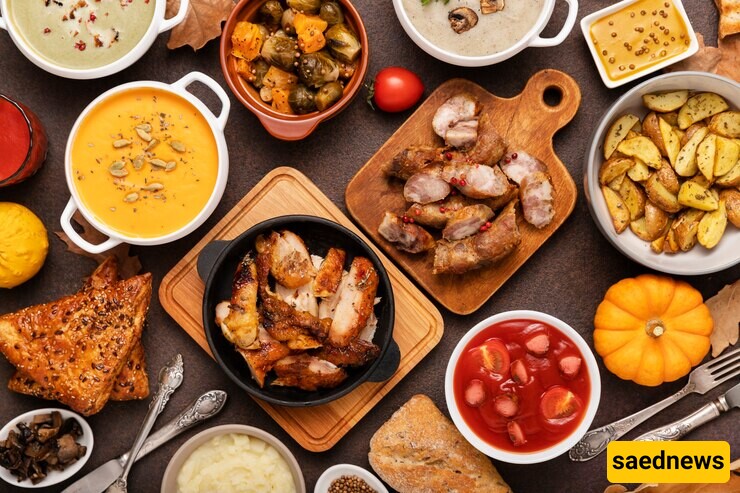SAEDNEWS: Across numerous cultures, some foods are considered sacred because of their links to spiritual practices, rituals, and longstanding traditions. Exploring the roots of these beliefs shows how food goes beyond mere nourishment to embody cultural identity and acts of devotion.

According to SAEDNEWS: food serves as more than a means of survival in many societies—it embodies cultural identity, spiritual beliefs, and communal unity. From rituals to festivals, sacred foods play pivotal roles in shaping traditions, often reflecting humanity's reverence for nature, ancestors, and deities.

In numerous religions, specific foods are considered sacred and offered to deities as a gesture of devotion. For instance, in Hinduism, fruits, sweets like modak, and milk are offered to Lord Ganesha during festivals. Similarly, in Christianity, bread and wine symbolize the body and blood of Christ during communion, representing faith and unity.
Certain foods are integral to maintaining ritual purity. For example, kosher laws in Judaism and halal guidelines in Islam dictate what can be consumed, emphasizing respect for divine commandments. These dietary practices connect individuals to their faith, fostering a sense of spiritual discipline.
Many sacred foods have ties to nature and agriculture. Indigenous communities often celebrate harvest festivals where crops like maize, rice, or wheat are honored. These foods symbolize gratitude to the earth for its abundance.
Sacred foods frequently represent natural elements. In Buddhist rituals, rice is a symbol of sustenance and enlightenment. Native American tribes regard corn as the "mother" of all crops, embodying life and sustenance.
Sacred foods often bring communities together during festivals. For instance, during Ramadan, Muslims break their fast with dates, following the Prophet Muhammad's tradition. This shared practice reinforces communal bonds and spiritual reflection.
Cultural dishes considered sacred are passed down through generations, preserving history and identity. For example, mooncakes during the Chinese Mid-Autumn Festival are more than desserts—they are carriers of folklore and familial unity.
In an increasingly globalized world, sacred foods serve as anchors for cultural identity. Communities in the diaspora continue to prepare and share these foods, maintaining their connection to heritage.
Some sacred foods are revered for their perceived health benefits. In Ayurveda, turmeric is considered sacred for its healing properties, often used in rituals and traditional medicine.
Industrialization and Sacred Foods
The mass production of food has led to the commodification of some sacred items, diluting their spiritual significance. Efforts to revive traditional farming and preparation methods aim to preserve their sanctity.
Changing Perceptions
As societies evolve, the role of sacred foods adapts. Younger generations reinterpret rituals, blending modern tastes with traditional values while retaining the essence of their cultural significance.
Sacred foods reveal the profound connection between nourishment, spirituality, and culture. They transcend their physical form, acting as symbols of identity, community, and faith. In honoring these traditions, humanity continues to celebrate its shared heritage and enduring reverence for the sacred.

